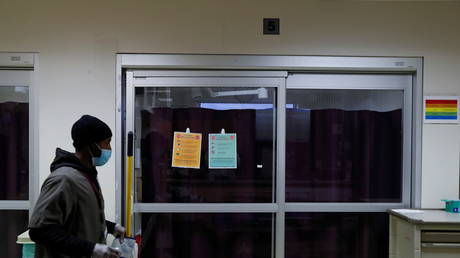
The US national public health agency halves recommended quarantine time as infections surge
The US Centers for Disease Control and Prevention (CDC) has cut its guidance for isolation of people newly infected with Covid-19 to five days from 10, saying the virus typically spreads early in the course of illness.
The change stems from growing evidence that Covid-19 transmission usually occurs within a short window – from 1-2 days before the onset of symptoms to 2-3 days after, the CDC said on Monday. The agency recommended that people who test positive for the virus isolate themselves for five days and, upon leaving quarantine, wear a mask for five days to minimize risk of infecting other people.
Similarly, the CDC halved the recommended quarantine period for unvaccinated Americans who are exposed to Covid-19 to five days. For those who can’t isolate themselves, the CDC advised wearing a mask when around others for 10 days after exposure. The same guidance applies to vaccinated people who are more than six months out from their second jab and haven’t received a booster shot.
Unveiling the new recommendations, the agency acknowledged that the rapid spread of Covid-19’s Omicron variant could sideline the workers needed to keep hospitals, airlines and other key businesses operating.
“The Omicron variant is spreading quickly and has the potential to impact all facets of our society,” CDC director Dr. Rochelle Walensky said. “CDC’s updated recommendations for isolation and quarantine balance what we know about the spread of the virus and the protection provided by vaccination and booster doses. These updates ensure people can safely continue their daily lives.”
Walensky told the Associated Press that many Omicron cases are going to be asymptomatic. “We want to make sure there is a mechanism by which we can safely continue to keep society functioning while following the science.”
Staffing disruptions caused by Omicron’s spread have already hobbled the US airline industry. Nearly 1,300 US flights were canceled on Monday and about 6,000 were delayed, according to tracking data from Flightware.com. Thousands of flights were canceled over the Christmas holiday weekend, the busiest time of year for US air travel.




